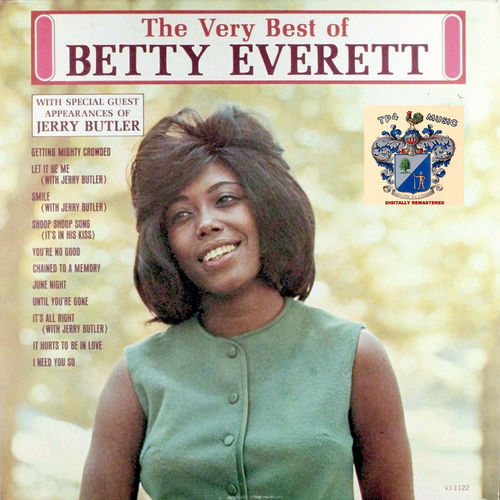Let it play in the background as you study and immerse yourself in this topic!
Pianist/ R&B singer Betty Everett was born on November 23, 1939, in Greenwood, Mississippi. Her early education began in 1945 at the Rosenwald Day School in Leflore County, Mississippi. At the age of 9, Everett was already playing the piano and singing gospel music in church. As a teenager, she was performing with Muddy Waters.
In 1956, at 17, Everett relocated to Chicago, Illinois, to live with a sister and further a career in secular music. Once in Chicago, she freelanced as a church pianist and recorded for small local Chicago soul labels. However, in 1963, Everett signed with Vee-Jay Records and landed many hits, including the single “You’re No Good” that reached no. 5 on Billboard Hot 100 and remained charted for 12 weeks. A year later, in 1964, she released “The Shoop, Shoop Song” and made it onto Billboard’s Top 10. It peaked at no. 1 and remained charted for 16 weeks. This hit was followed by the successful duet “Let It Be Me” with the legendary R&B vocalist Jerry Butler. The single also rose to the Top 10. It reached no.1 and stayed there for 17 weeks. “Getting Mighty Crowded” also came out in 1964, and it peaked at no.28 and remained steady for 8 weeks along with another duet with Butler,” Smile,” that reached no.16.
In 1969, Everett released the successful single “There’ll Come A Time.” It became a hit reaching no. 2 on the R&B chart and remained charted for 13 weeks. “It’s Been a Long Time” peaked at no.17 on the R&B chart and stayed there for 7 weeks.
During the 1970s, Everett also had a string of hits. In 1970, she released “Unlucky Girl,” which reached no. 46 R&B and “I Got to Tell Somebody” which peaked at no. 22 R&B and no. 96 on the Billboard Hot 100. Four years later, in 1974, Everett released “Sweet Dan,” that made it to no. 38 on the R&B chart and remained there for 14 weeks. And one of her last hits came in 1978 when she released “True Love (You Took My Heart) which peaked at no. 78 on the R&B chart.
In 1996, Everett received a Pioneer Award from the Rhythm & Blues Foundation in ceremonies at the Hollywood Palladium in Hollywood, California. In 2000 Everett was featured on the PBS special Doo Wop at 51 that paid tribute to a cappella ensembles of the 1950s and 1960s.
Betty Everett died on August 19, 2001, in Beloit, Wisconsin. She was 61.
Do you find this information helpful? A small donation would help us keep this available to all. Forego a bottle of soda and donate its cost to us for the information you just learned, and feel good about helping to make it available to everyone.
BlackPast.org is a 501(c)(3) non-profit and our EIN is 26-1625373. Your donation is fully tax-deductible.
“Betty Everett,” Allmusic.com, https://www.allmusic.com/artist/betty-everett-mn0000058361; “Betty Everett,” Soulwalking.co.uk, http://www.soulwalking.co.uk/Betty%20Everett.html; “Betty Everett,” Billboard.com, https://www.billboard.com/artist/betty-everett/.

